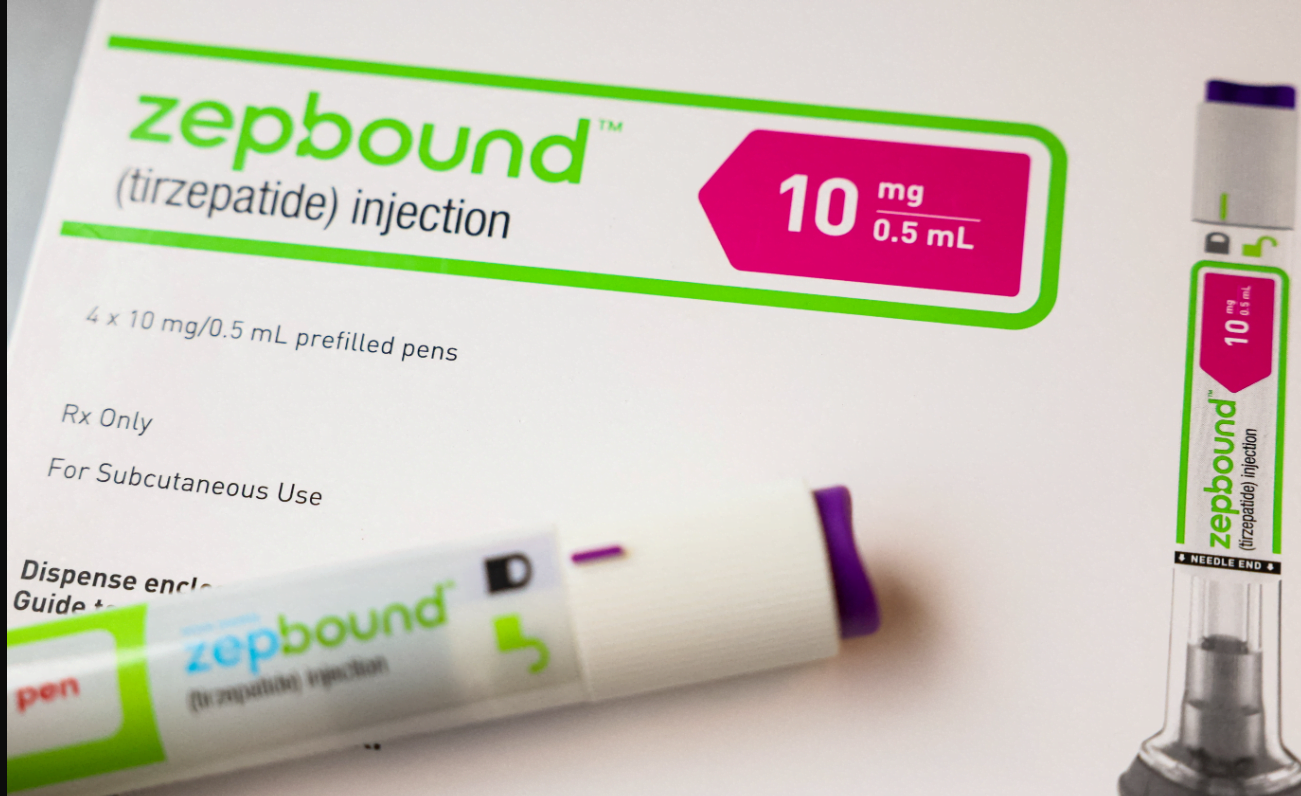Introduction
In recent years, the pursuit of effective and sustainable weight loss methods has gained momentum, especially with the growing obesity epidemic. Among the latest advancements in this field is Zepbound (tirzepatide), a medication approved by the FDA in 2023 for chronic weight management. Developed by Eli Lilly, Zepbound has garnered attention due to its innovative approach to reducing body weight. This article delves into how Zepbound works, its effectiveness, usage guidelines, and the potential benefits it offers for those struggling with obesity.

How Zepbound Works
Zepbound is a unique injectable medication that targets two crucial metabolic pathways—glucagon-like peptide-1 (GLP-1) and glucose-dependent insulinotropic polypeptide (GIP). By stimulating both receptors, Zepbound enhances the body’s natural ability to regulate appetite and improve insulin sensitivity. GLP-1 and GIP are hormones that play a vital role in controlling blood sugar levels and appetite. Zepbound’s dual-action mechanism reduces hunger, slows down digestion, and promotes a feeling of fullness, leading to decreased calorie intake and subsequent weight loss.
Clinical Effectiveness
Clinical trials have demonstrated Zepbound’s impressive effectiveness in weight loss management. Participants using the medication reported an average weight loss of up to 21% of their initial body weight over the course of 72 weeks. These results are particularly significant for individuals with a body mass index (BMI) of 30 or greater or those with a BMI of 27 or higher who also have weight-related conditions such as hypertension, type 2 diabetes, or sleep apnea. The medication’s success in clinical trials has positioned it as a promising option for people who have struggled to achieve lasting weight loss through traditional methods alone.
Who Can Benefit from Zepbound?
Zepbound is intended for adults with obesity or those who are overweight with at least one related health condition. It is prescribed as an adjunct to a reduced-calorie diet and increased physical activity. The combination of lifestyle changes and Zepbound helps maximize weight loss outcomes while addressing the underlying factors contributing to obesity. This treatment is particularly beneficial for those who have difficulty maintaining weight loss through conventional methods or those who experience weight regain after initially losing weight.

Administration and Usage Guidelines
Zepbound is administered via a weekly subcutaneous injection, making it a convenient option for long-term use. The dosage is gradually increased over several weeks to allow the body to adjust and minimize potential side effects. Patients typically start with a low dose, which is progressively titrated based on tolerance and effectiveness. As with any medication, it is essential to follow the prescribing healthcare provider’s guidance closely to ensure the best outcomes and reduce the risk of adverse reactions.
Potential Benefits Beyond Weight Loss
Beyond its primary role in weight management, Zepbound has shown promise in improving several obesity-related health conditions. The medication’s ability to enhance insulin sensitivity makes it particularly beneficial for individuals with type 2 diabetes, as it helps regulate blood glucose levels more effectively. Additionally, by reducing excess body weight, Zepbound can alleviate symptoms of hypertension, dyslipidemia, and obstructive sleep apnea. This broad range of benefits underscores Zepbound’s potential as a comprehensive solution for individuals dealing with multiple health issues linked to obesity.
Considerations and Side Effects
While Zepbound offers substantial benefits, it is important to be aware of potential side effects. Common side effects include nausea, vomiting, and gastrointestinal discomfort, particularly during the initial weeks of treatment. These side effects are generally mild and subside as the body adapts to the medication. However, more severe reactions, such as pancreatitis or gallbladder issues, can occur, though they are less common. It is crucial for patients to discuss their medical history and any existing health conditions with their healthcare provider before starting Zepbound to determine if it is a suitable option.
The Future of Weight Management
The approval of Zepbound marks a significant step forward in the treatment of obesity and related health conditions. Its dual-action mechanism, combined with its proven clinical effectiveness, positions it as a valuable tool for individuals seeking sustainable weight loss. As obesity continues to pose a global health challenge, medications like Zepbound offer new hope for those who have struggled to achieve and maintain a healthy weight. With continued advancements in medical science, the future of weight management looks increasingly promising for individuals ready to take control of their health.

Conclusion
Zepbound is more than just another weight loss drug; it represents a new approach to tackling obesity by addressing both appetite regulation and insulin sensitivity. For many people, it offers a pathway to improved health and a better quality of life. As more individuals embrace this treatment, Zepbound could become a cornerstone in the fight against obesity and its associated complications. If you are considering Zepbound as part of your weight loss strategy, consult your healthcare provider to discuss the potential benefits and risks based on your specific health needs.
Also Read: The Ultimate Guide to Weight Cutting: Exciting Steps to Achieve Your Weight Loss Goals




Leave a Reply